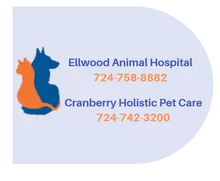My journey into integrative medicine started with adding acupuncture services in 1988. At that time, 99% of the pet owners visiting the practice didn’t know we offered eastern medicine. People in the US had very little exposure to acupuncture, as there were very few acupuncturists offering care for humans; there were fewer veterinarians offering the service.
When pet owners requested acupuncture, because they had contacted the International Veterinary Acupuncture Society, I performed the service on their pets, but limited the treatment of other pets to conventional western treatments.
My first IVAS referred acupuncture client had a pet diagnosed with an inoperable heart defect, by one of the most prominent veterinary cardiologists. The echocardiogram indicated a severe defect, with unlikely survival beyond her second birthday.
Since western medicine offered no hope, the owner turned to integrative care. With diet change, acupuncture and homeopathy, she lived to be 15.5 years old.
Because alternative care was helped many of my sickest patients, I often considered that we should offer this care for all patients.
In 1992, I began to tell long term clients about eastern medicine. The first time I offered TCVM to owners unsolicited, they looked at me like I had just sprouted antennae and asked what would make me think about doing acupuncture for a cat.
The next client asked about ALL the options for treatment of chronic ear infections. When I reviewed treatment choices, the client declined continuing antibiotics. I offered acupuncture, and she said it sounded ridiculous, and she would not be back - I guess she didn’t really want to know ALL options.
I reverted to offering acupuncture only upon referral until 1996, when a cat named JD changed my practices about making eastern medicine widely available.
JD had been in liver failure for months, and after the OSU College of Veterinary Medicine specialists declared there was nothing they could do, he returned to my care. His owners asked for anything to provide comfort and extend his life.
Acupuncture not only saved him, but regenerated his liver. He lived to be 18.5 years old.
These cases are a few of the thousands which have had excellent response to integrative medicine.
Are there patients who do not have life-saving outcomes? Absolutely. Some animals are in the end stages of life, and our goal is palliative (comfort) care, when we cannot achieve resolution.
How can we know which patients will respond and which will not? In medical situations, there are no guarantees, but, when all other treatments have failed and 80% of our integrative patients achieve improvement, positive response to therapy is proof that a treatment is effective.
I recently read an article online which was followed by reviews of a practitioner who provided integrative medical care for humans with terminal cancers and non-responsive autoimmune conditions. Several patients and their families posted how the care they received extended the patients’ lives, improved comfort, and, in several cases, brought about full remissions. There was a single negative review, posted by a person who had never visited the practice, but made several uninformed comments. She stated that “All this New Age-hype about things that don’t exist, like Chi or Qi, have no foundation in medical practice, and just because many forms of medicine have been practiced for thousands of years, doesn’t mean they work.”
I agree with the comment that doing something repeatedly isn’t proof of effectiveness. However, the fact that many people and animals have positive results and remissions is actual proof.
In the case of eastern medicine, it does work, and that’s why people are still using it. In fact, the World Health Organization established, in 1980, has said that TCM (Traditional Chinese Medicine, which includes treatment with Chinese herbs, acupuncture and a system of massage call Tuina) is the most effective and cost-effective system of health care in the world. It both treats and maintains health and does so at a better value than western medicine.
Resistant conditions and diseases can be effectively treated, and contrary to what many in the medical profession state, there are hundreds of thousands of articles published which demonstrate its effectiveness.
I practice integrative veterinary medicine, which means that pets benefit from the advantages of western medicine for the treatment of acute and emergency conditions.
I also integrate many other therapies for pets suffering from chronic health conditions.
These therapies include:
Acupuncture
Chinese herbs
NAET
Animal chiropractic
Veterinary massage and rehabilitative therapy
Craniosacral therapy
Essential oils
Integrative oncology
SanaWave therapy
Bach Flowers
Underwater treadmill
Nutritional/Nutraceutical therapy
If you are treating chronic health conditions with repeated drug therapy, or you want more natural alternatives, find an integrative practitioner. Veterinarians can be found by AHVMA.org.
No form settings found. Please configure it.
Integrative Veterinary Care: New Age Hype or Foundations in Science
posted: Jun. 07, 2019.
Location
Find us on the map
Office Hours
Our Regular Schedule
Ellwood Animal Hospital
Monday:
9:00 am-8:00 pm
Tuesday:
9:00 am-5:00 pm
Wednesday:
9:00 am-8:00 pm
Thursday:
9:00 am-5:00 pm
Friday:
9:00 am-5:00 pm
Saturday:
9:00 am-1:00 pm
Sunday:
Closed
Cranberry Holistic Pet Care
Monday:
8:00 am-5:00 pm
Tuesday:
9:00 am-5:00 pm
Wednesday:
11:00 am-7:00 pm
Thursday:
9:00 am-5:00 pm
Friday:
8:00 am-5:00 pm
Saturday:
8:00 am-1:00 pm
Sunday:
Closed
